Fare-dodging on Britain’s railways has surged in recent years, according to new figures released under the Freedom of Information Act.
Data obtained by The Giste reveals men make up the clear majority of offenders across Northern Rail, Nexus, LNER and ScotRail, with young male passengers in particular driving tens of thousands of cases.
The North East is at the sharp end of Britain’s rail fare-dodging epidemic, with operators like Northern Rail and the Tyne and Wear Metro (Nexus) logging a combined total of over 416,000 cases of ticketless travel in less than four years.
Northern Rail, which operates local and regional services across the North East and Northern England, has recorded a staggering 352,000 evasion cases between August 2021 and May 2025. This makes it the worst-hit operator in the data disclosed.
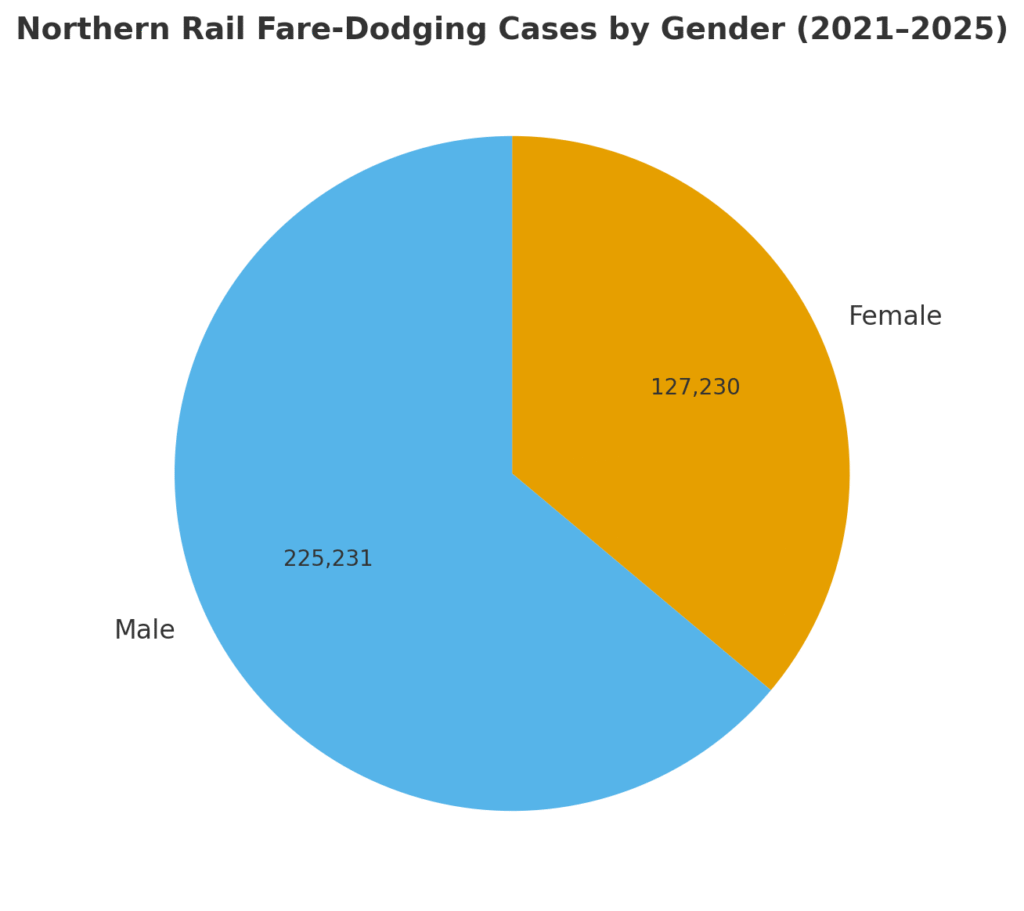
The scale of the problem has resulted in legal actions, with over 155,000 legal cases linked to fare evasion escalating to the courts.
The data reveals that younger passengers are overwhelmingly the main offenders, with the 18–30 age bracket accounting for the largest number of recorded incidents (53,172 people).
Thousands of passengers faced formal prosecution, with 62,290 successful prosecutions recorded, the highest figure of all operators. However, an even greater number of cases were either withdrawn (56,141) or settled out of court (19,901), demonstrating the pressure the issue places on the court system. Additionally, 17,446 prosecutions were nullified, and a handful resulted in discharges or ‘not guilty’ verdicts.
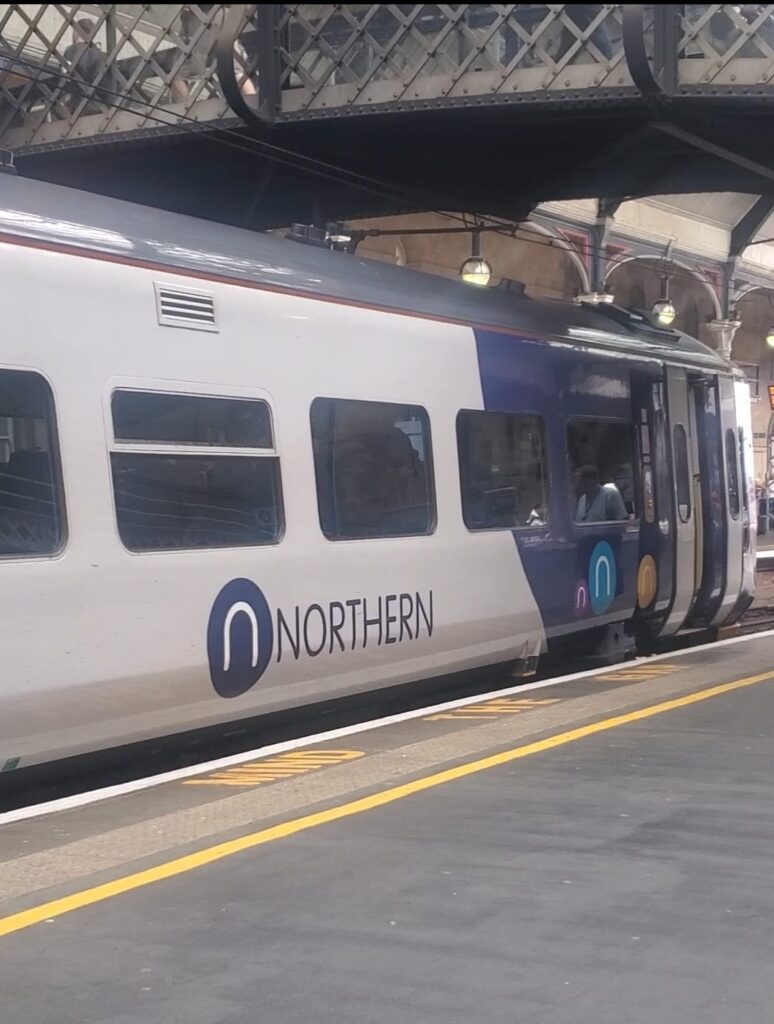
Cases involving teenagers were also substantial, with 13,000 recorded.
Northern Rail stated the figures highlight the sheer scale of the challenge and its commitment to tackling revenue loss. However, campaigners argue the rise reflects both economic pressures during the cost-of-living crisis and persistent gaps in ticket barriers and staffing.
The total figure includes all passengers caught without a valid ticket who were issued Penalty Fare Notices, Unpaid Fare Notices, Travel Incident Reports, or formal warnings.
Tyne and Wear Metro
Figures from Nexus reveal more than 64,000 penalty fares have been issued since 2021, with central Newcastle stations at the heart of the problem.
Monument station accounted for over 10,000 cases, Central Station saw 6,023, Gateshead 4,871 and North Shields recorded 4,222.
A further 4,185 offences were logged as “no station recorded”, indicating that inspectors are catching thousands already on trains rather than only at barriers.
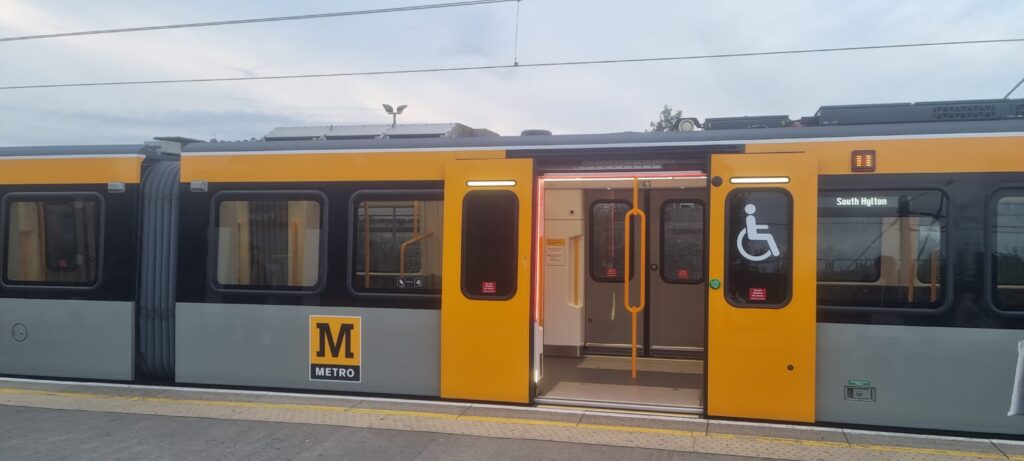
The demographic breakdown reveals that 87% of offenders were adults, while 13% were children, most aged 15–17.
Among adults, the average age was 30, with the bulk in their late teens and twenties. Men topped the chat with 76.5% evasions.
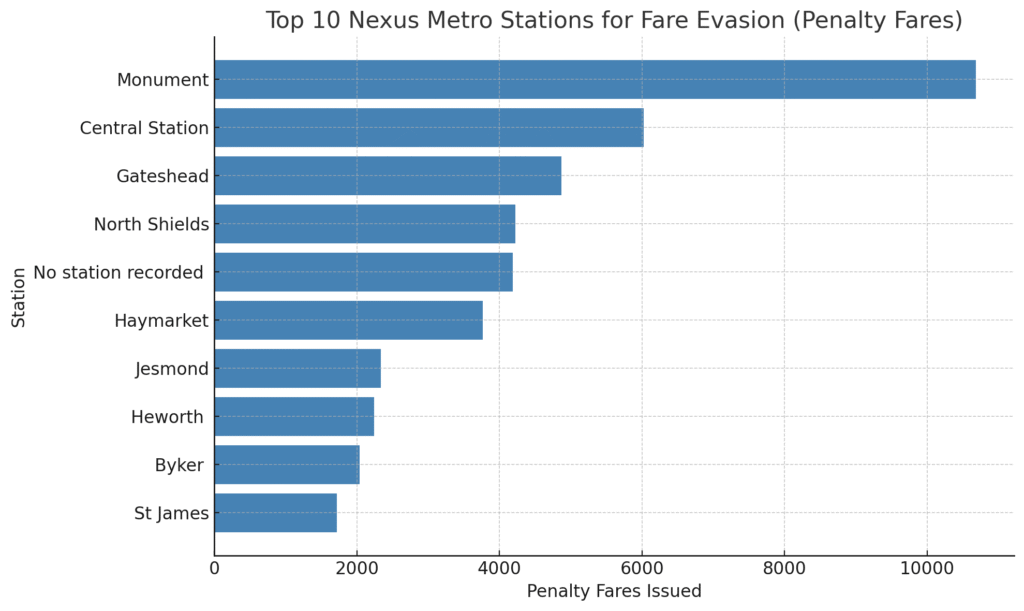
Nexus says penalty fares are “a vital tool to protect revenue and fairness for paying customers”. Passenger groups argue high ticket prices and limited staffing make fare-dodging an “attractive gamble” for younger travellers.
Meanwhile, a new £2.1m project to install the first new automatic ticket gates on the Tyne and Wear Metro in more than ten years is now underway, following investment by North East Mayor Kim McGuinness to make the network safer.
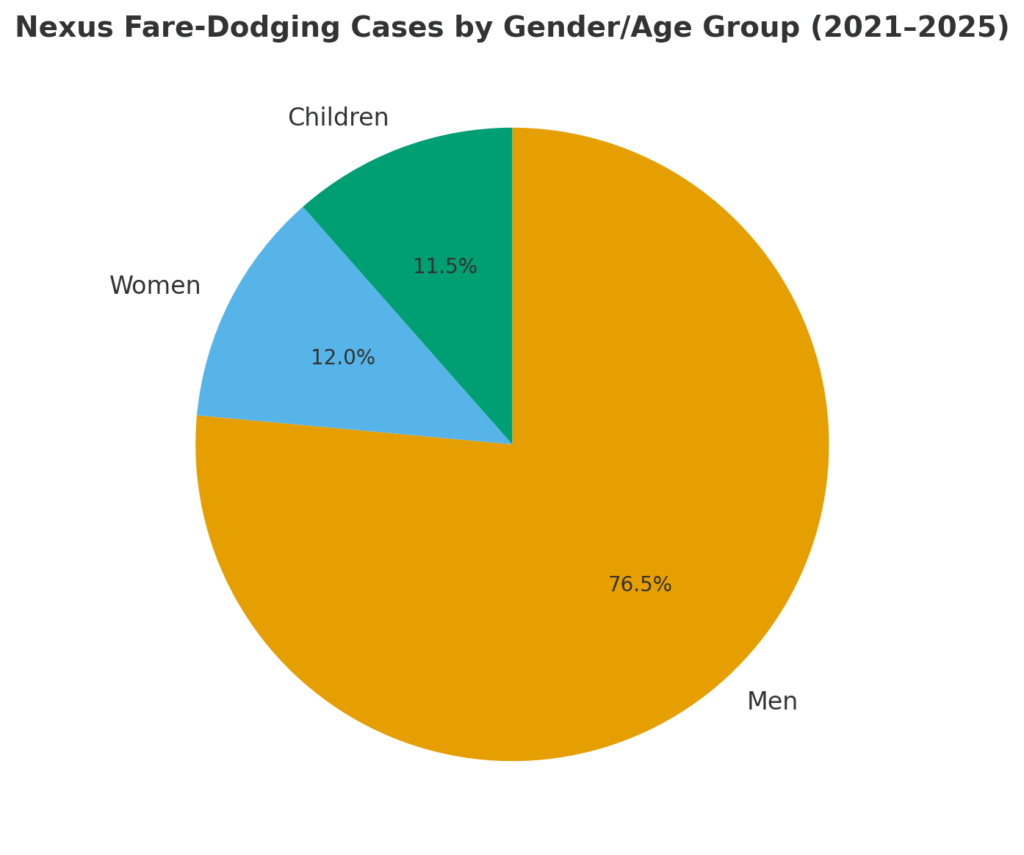
Kim McGuinness, said: “Everyone should feel safe when using public transport but sadly I know that too often this isn’t the reality, particularly for women and girls I speak to. I promised to put ticket barriers and staff at more Metro stations and now we have committed the money to do that.
“I’m pleased to see work starting so there will be barriers at Regent Centre by the end of this year. This is just the start of our multi-million pound investment to make public transport safer by replacing unwanted old bus shelters right across the North East, putting in better lighting and updating CCTV.”
On long-distance routes, London North Eastern Railway (LNER) recorded almost 15,000 fare evasion incidents between 2021 and early 2025, while issuing more than 39,000 unpaid fare notices.
Most offenders were men in their twenties and thirties, who accounted for nearly 70% of all cases.
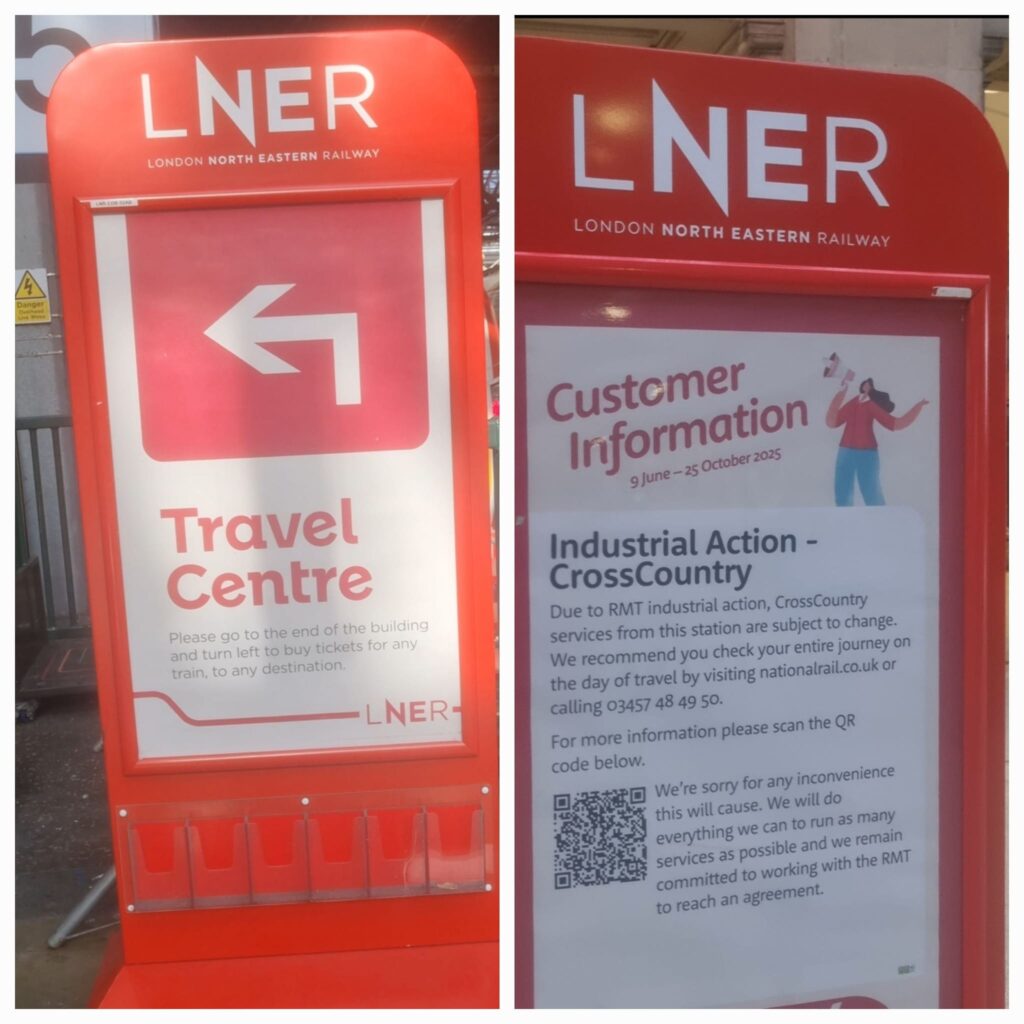
Prosecutions were comparatively rare, with just 11,337 incidents escalated for further legal action.
Campaigners described the figures as “a costly but predictable problem”, arguing that enforcement has failed to keep pace with rising ticket prices. The industry estimates fare evasion costs rail operators around £200 million a year.
In response, LNER said it was “committed to tackling fare evasion through inspections and penalties to ensure fairness for paying passengers”.
Meanwhile, in Scotland, ScotRail has recorded a sharp rise in fare irregularities, with new figures showing the number of irregularity notices issued has more than quadrupled since 2022.
Figures released under the Freedom of Information (Scotland) Act show just 207 irregularity notices were issued in 2022/23, rising to 433 in 2023/24 before leaping to 1,042 in 2024/25. A further 574 were recorded between April and July 2025.
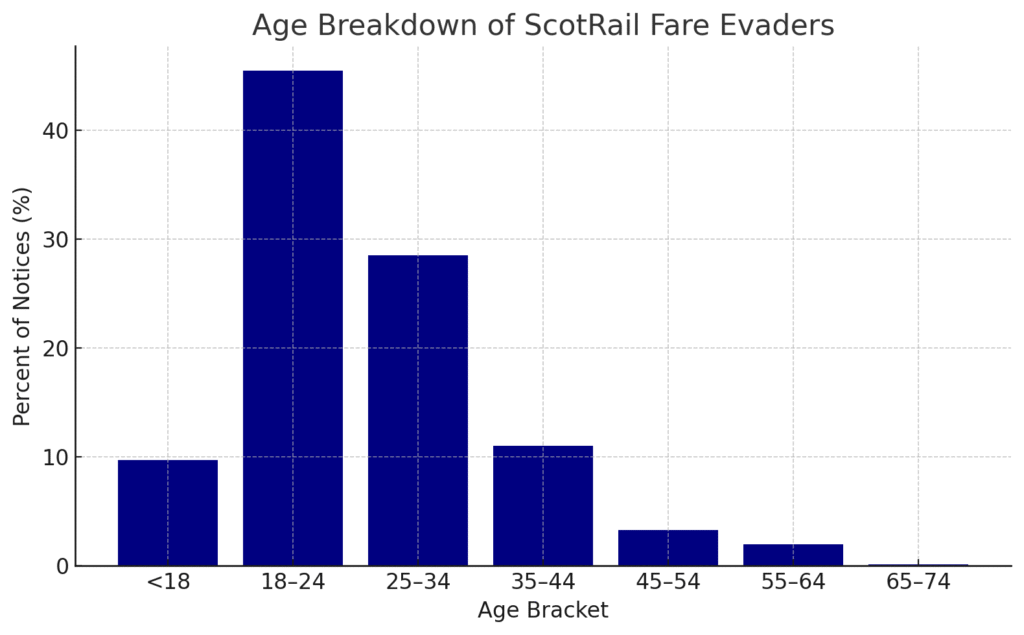
The operator said the increase coincided with the gradual rollout of its new digital Travel Irregularity system, launched in 2023, and an overall rise in passenger footfall, rather than a spike in fare dodging per passenger.
Unlike other networks, ScotRail does not issue penalty fares or fines. Each irregularity notice is a charge for the cost of an Anytime Single ticket, sometimes with an administration fee attached. Data shows the value of payments received is linked directly to the number of notices logged each year.

Despite the spike in reports, prosecutions remain rare. ScotRail confirmed just two cases have reached court in recent years, one under common law fraud and another under the Regulation of Railways Act 1889. Most serious or repeat offenders are passed to the British Transport Police.
The demographic breakdown suggests fare evasion is concentrated among younger travellers. Those aged 18–24 accounted for nearly half of all cases (45.5%), while 25–34 year-olds made up 28.5% and under-18s 9.7%. By gender, notices issued to men, listed as “Mr”, made up 60% of cases, with women (recorded as “Miss”, “Ms” or “Mrs”) representing a third. The figures indicate that men in their late teens and twenties are most likely to be caught travelling without a valid ticket.
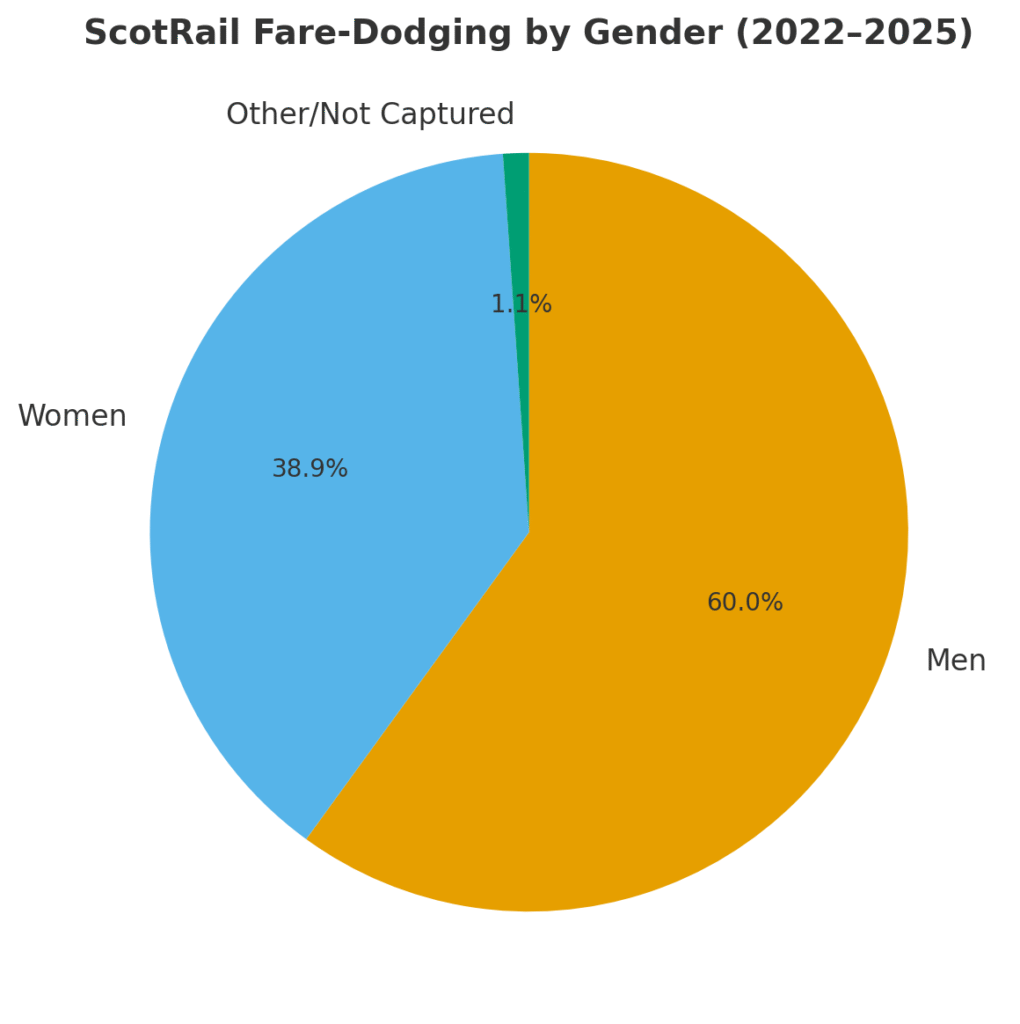
Fare evasion is punished in court by a fine of up to £1,000. However, the imposition of a criminal conviction often carries far more serious consequences and could lead to the loss of your job.
A genuine mistake or misunderstanding can still result in these consequences. However, the Prosecutions Units are typically more concerned with deliberate Fare Evasion, such as buying tickets which do not cover the whole journey or travelling on expired Railcards
While operators argue penalties are necessary to deter abuse, watchdogs warn the problem is likely to grow unless fares are made more affordable.
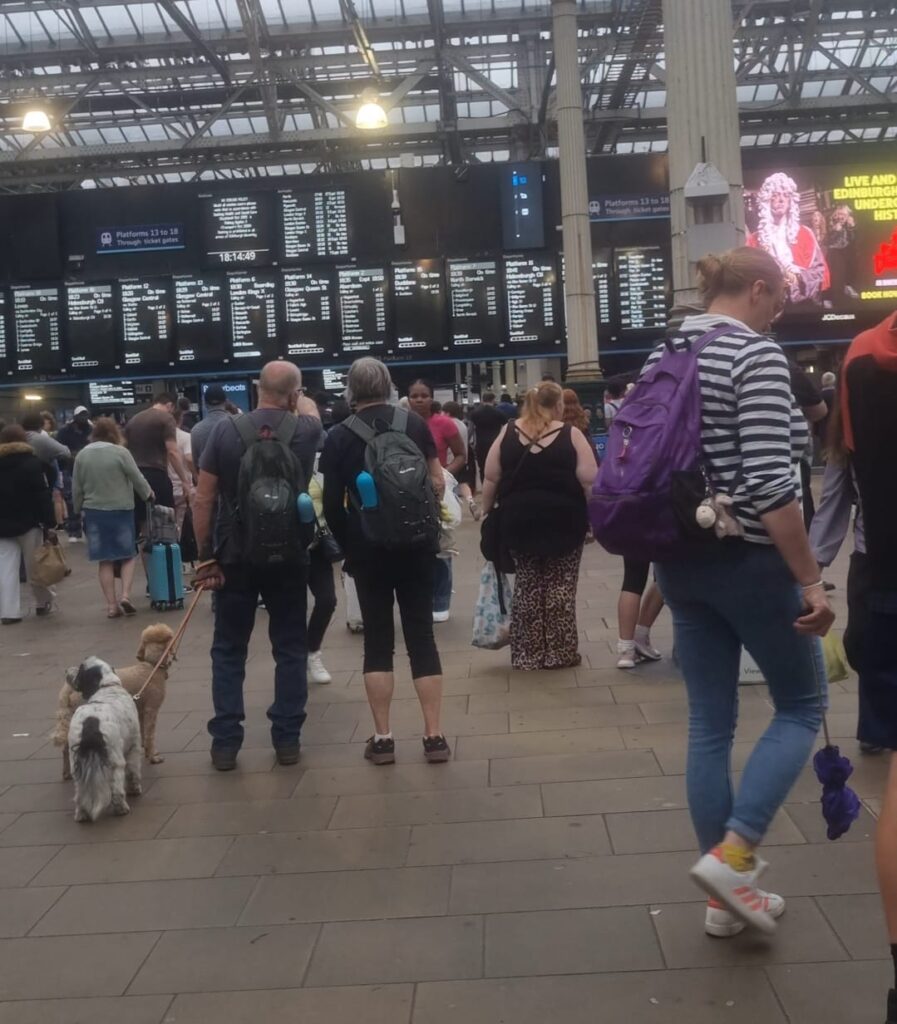

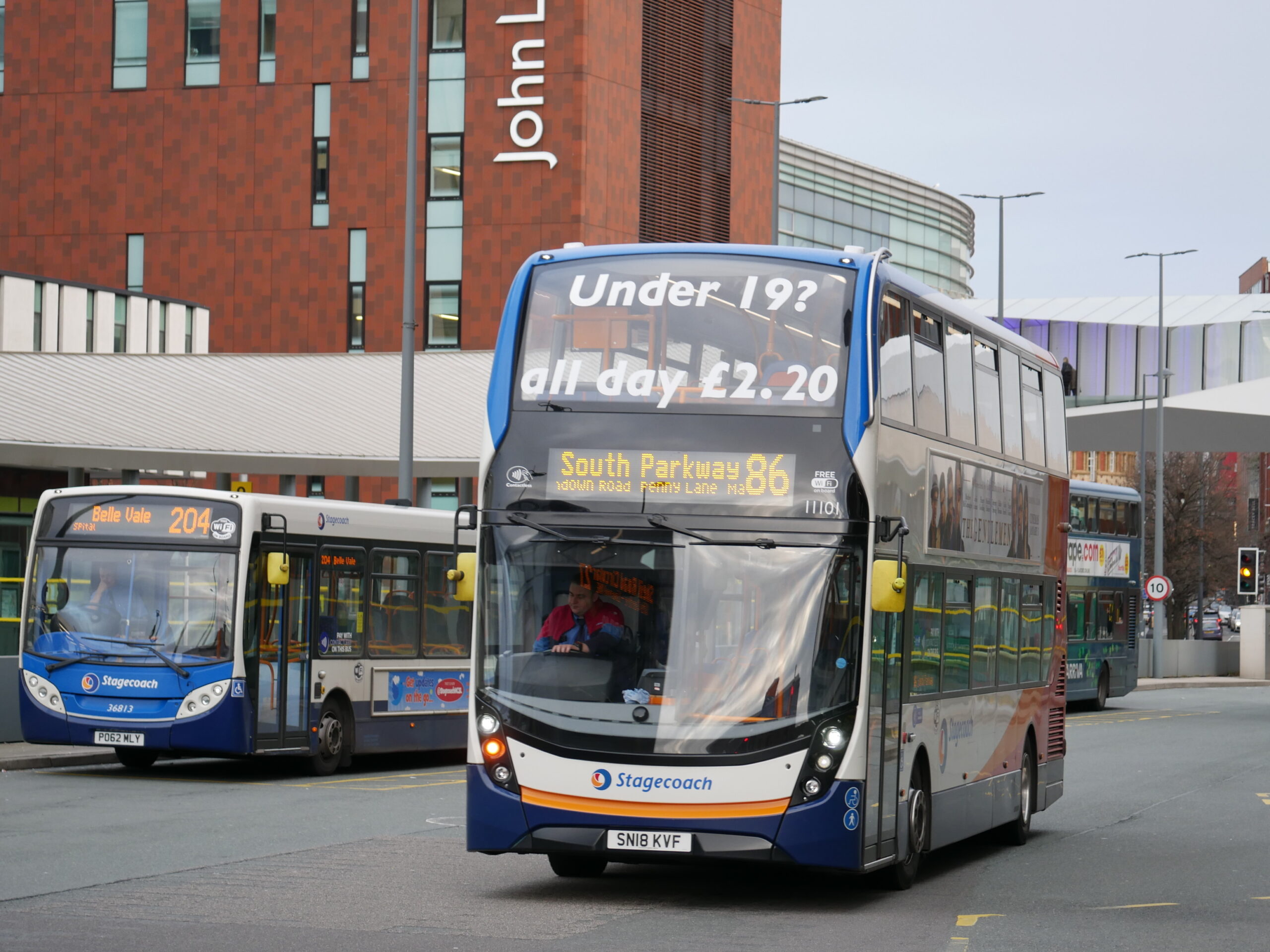





Leave a Reply